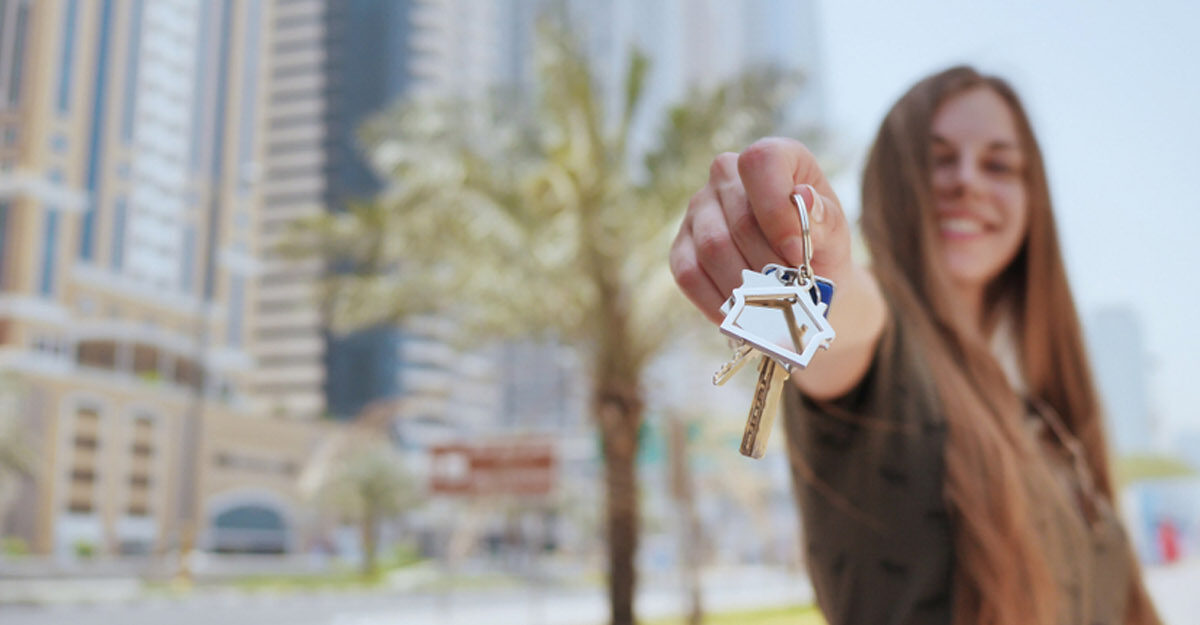The UAE government has now allowed resident expatriates and non-residents to buy property in Ajman and elsewhere in the country. Wealthy investors worldwide welcomed this news, and investment has been pouring in since then.
Dubai’s real estate industry has been booming since the authorities allowed foreigners to own freehold properties in 2022.
Now, global investors consider Dubai an ideal choice for profitable investments in real estate. In the city, you find various kinds of real estate, including apartments, villas, studios, and commercial buildings.
Furthermore, the Dubai government keeps the real estate market highly regulated, which added to the country’s thriving economy and secure environment, leading to healthy ROIs.
For this reason, there is never a shortage of people wanting to invest in the UAE’s property market.
So yes, a foreigner can buy property in the UAE. But still, you have many questions in your mind. Don’t worry, as we will guide you on how you can invest in UAE’s real estate market and what you need.
How Can An Expatriate Invest in Real Estate in the UAE?
Previously, the UAE government didn’t allow expatriates to buy properties in the country. This changed when the world-famous tourist destination Dubai decided to amend the laws which allowed foreigners to buy property in the city.
Abu Dhabi is the capital of the UAE. It followed Dubai in allowing expatriates to invest in real estate in the Emirate. Other emirates followed suit shortly, including Ras Al Khaimah, Sharjah, and Ajman.
Expats can buy real estate in two categories — freehold and leasehold. Let’s have a look at both of them.
Freehold Property Ownership
If you are an expatriate living in the UAE for study or work, you can invest in freehold property now. Freehold property is a property where you get ownership of the building structure and the land on which it is built.
The United Arab Emirates has designated specific freehold property areas where foreigners can buy real estate.
Leasehold Property Ownership
When an expatriate buys a leasehold property, they only get the unit’s ownership (villa, apartment) but not the land it stands on. UAE authorities allow foreigners to hold leasehold property ownership for up to 99 years, based on the timeframe mentioned in the leasehold agreement.
Note that freehold land ownership laws for expatriates and non-resident foreigners differ for every Emirate. We will discuss the rules that determine investing in real estate in the country for foreigners.
Property Ownership in Abu Dhabi
You, as a foreigner, can buy and own only villas and apartments in Abu Dhabi. Other types of real estate, like studios, commercial places, and hospitals, aren’t yet allowed by the authorities.
Expatriates and non-residents can own freehold land using one of the four systems authorized for them.
1- Mustaha
Mustaha is a contract entitling the property owner to invest in or build a unit, lease, mortgage, sell or buy a piece of real estate belonging to an outsider group for a specific period. They can enjoy the ownership of a residential property for fifty years.
The owner can renew the contract for the same period if all parties involved agree to do so.
2- Long-term Lease
The initial timeline of a long-term lease has to be at least 25 years long.
3- Ownership Deeds
You, as an expatriate, can buy apartments and villas under this system. You will get ownership deeds of your property for 99 years. You could demolish your villa or apartment, but not the land during this period.
4- Usufruct
This contract allows foreigners to own residential property for 99 years. They could use their purchased residential unit and its facilities but could not alter it.
9 Places in Abu Dhabi Where Foreigners Can Own a Property
- Yas island
- Mariya
- Saadiyat
- Al Reef
- Reem
- Lulu
- Madar City
- Sayh Al Sedairah
Property Ownership in Dubai
Dubai’s government limits foreigners to some areas where they can buy freehold properties.
Fortunately, the freehold areas in Dubai are among the most sought-after ones in the city. They have different types of properties to pick from, including duplexes, apartments, hotel apartments, townhouses, villas, and lofts.
Non-nationals can invest in some of the most popular neighborhoods, which also happen to be freehold areas.
They include Palm Jumeirah, Downtown Dubai, Dubai Marina, Arabian Ranches, Jumeirah Village Circle, and Dubailand.
Foreigners can find affordable and lavish properties in these areas to invest in real estate, available at the price they can afford.
Expats and non-residents can also purchase commercial real estate in the Emirate, including retail outlets, showrooms, and offices in freehold neighborhoods.
Bottom Line
Foreigners can also get mortgages from local banks but will have fewer choices than expatriates and UAE citizens. UAE is a lucrative country to buy properties. The place is secure, inclusive, and peaceful.
The UAE government is determined to attract more foreign investments to boost an economy that declined after Covid-19. This presents a golden opportunity for real estate investors outside UAE to buy properties to gain returns on their investments.


